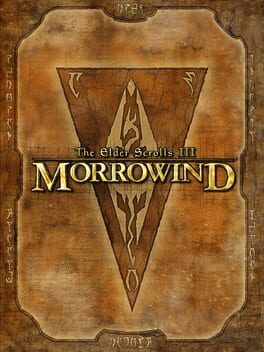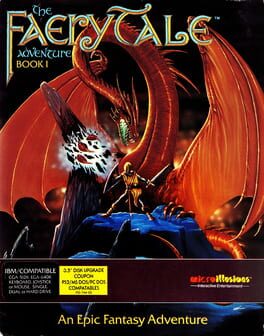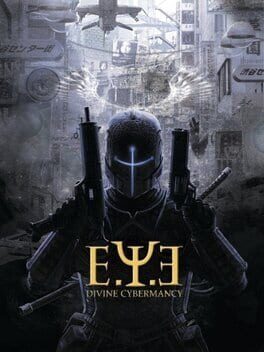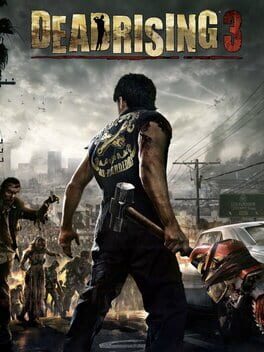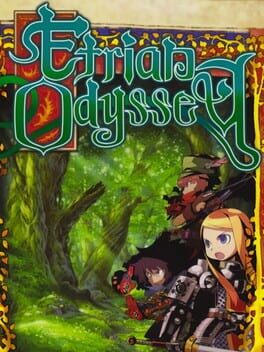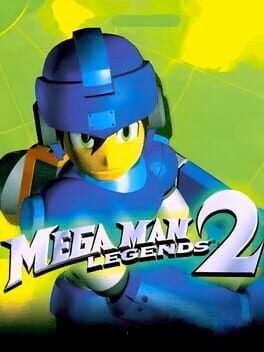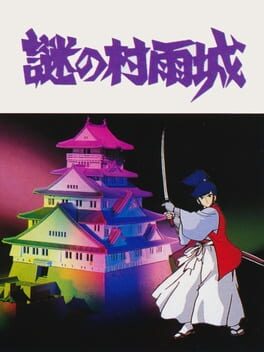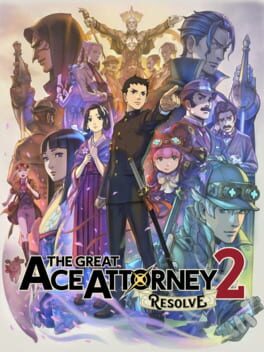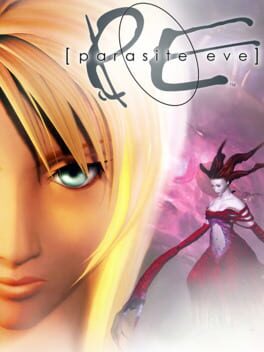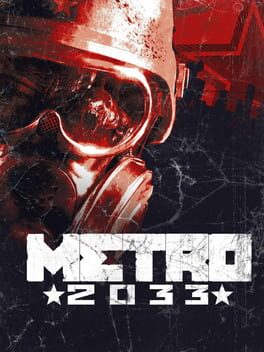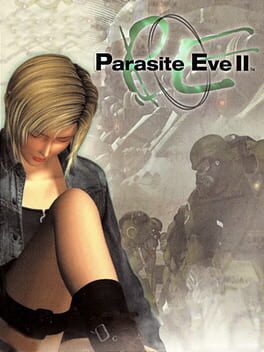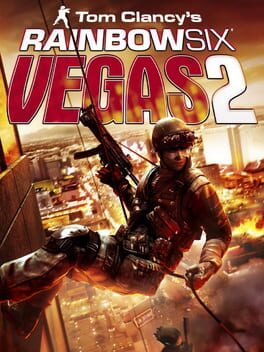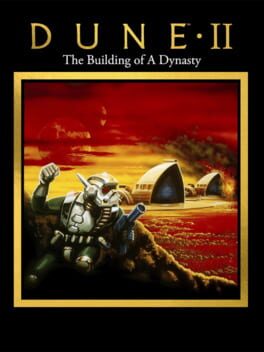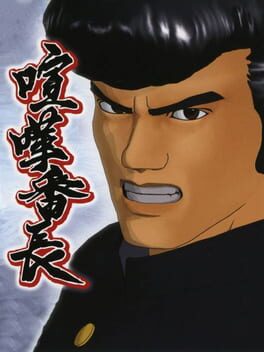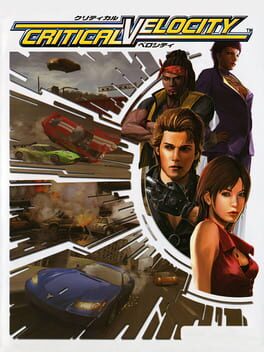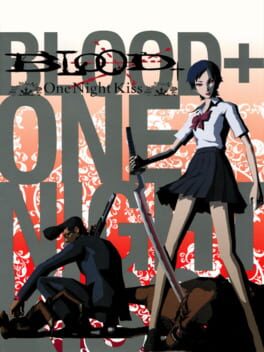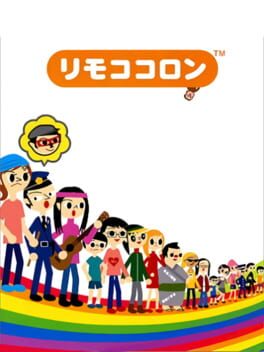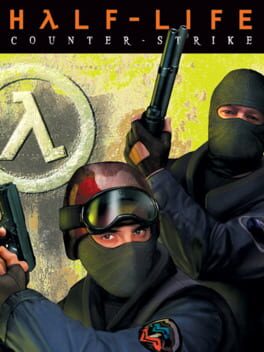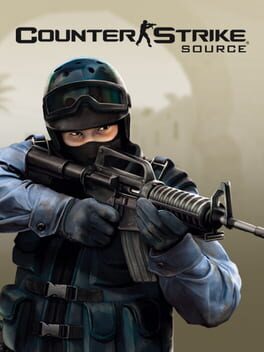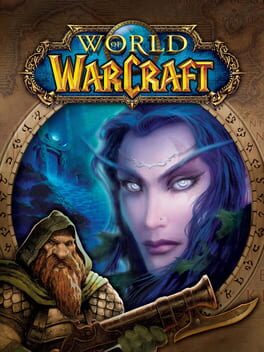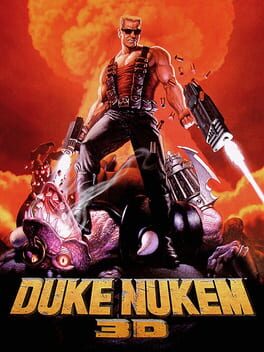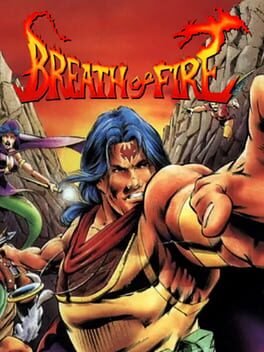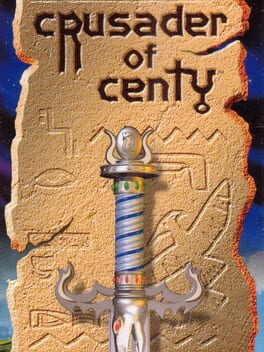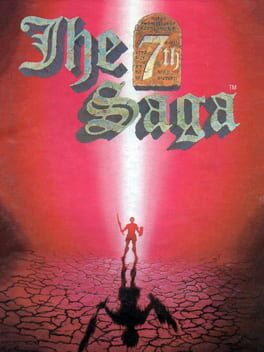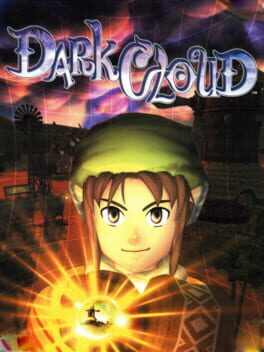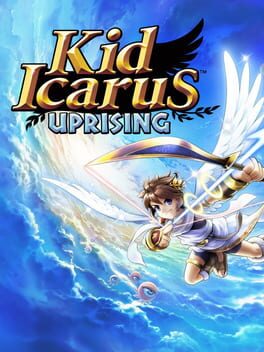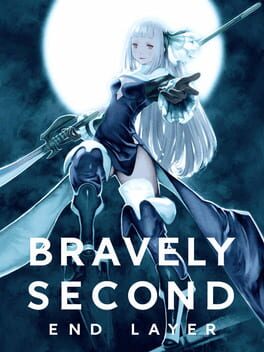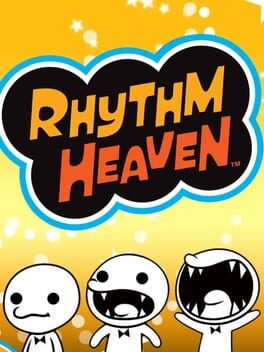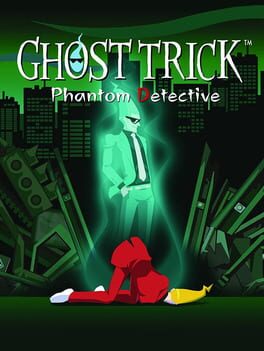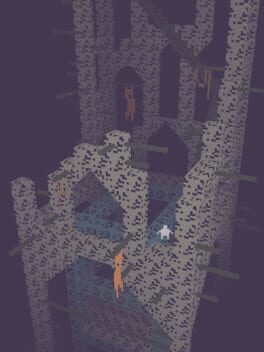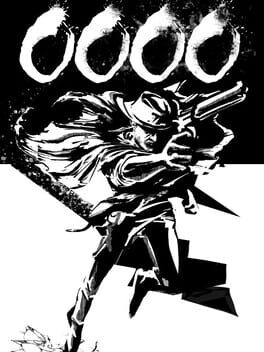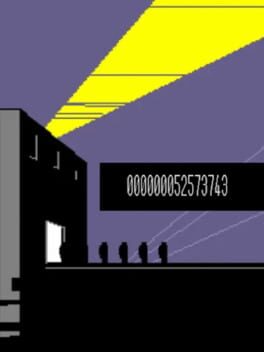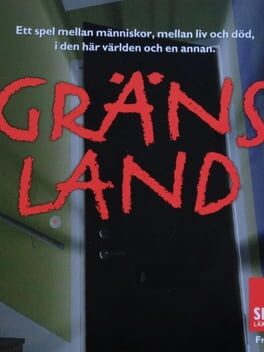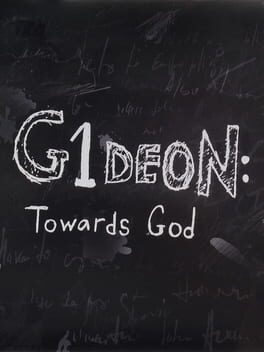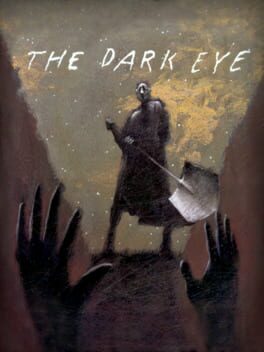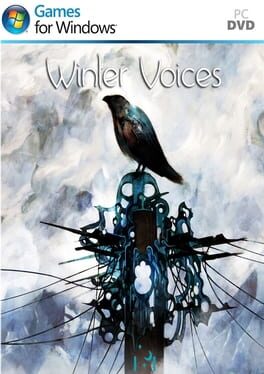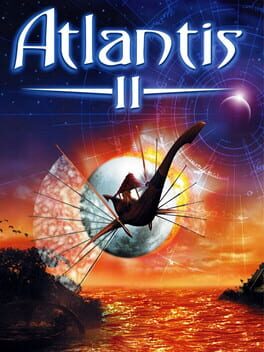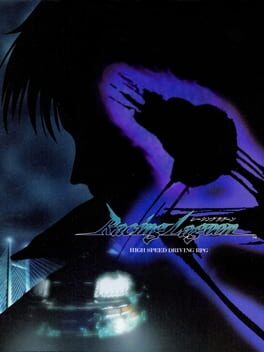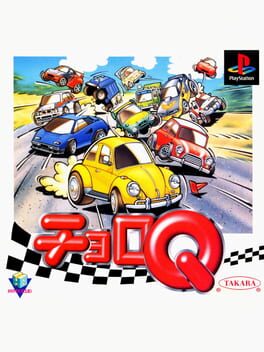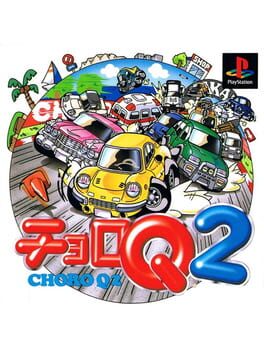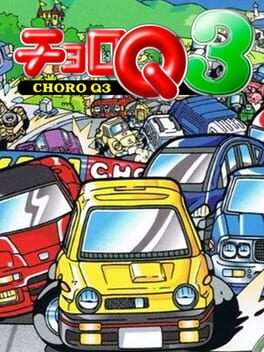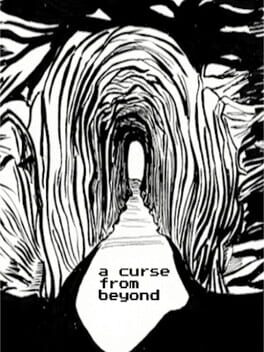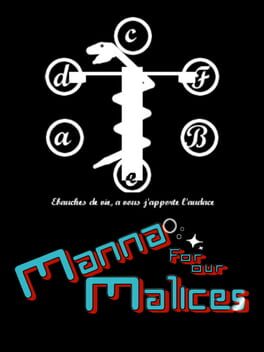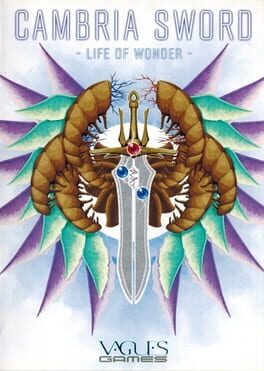293 reviews liked by thecasccas
One of the most painless ways to introduce disaffected teenagers to Borges and comparative religion. Remains the medium's premier bookshop simulator and the game which gives the most thought to the character of its cities and to patterns of settlement within a region. The fact that a single NPC might provide information for multiple, unrelated quests makes the world feel far more robust than the voice-acted single-use animatronics of the modern role-playing game.
A game that feels very much stuck between two pivotal eras of gaming, and seemingly also forgotten by history.
In some ways, it feels like a western evolution of the Zelda/Ys action RPG format. Your character explores an open world with some dungeons and towns scattered across it, gains experience and gets stronger. At the same time, the menu interface makes this feel like a test run of countless CRPGs that would follow in its wake.
Visually, it's a mixed bag as the graphics are serviceable, but the world feels very empty, and many of the areas you explore feel repetitive as a result of that. It tries to play around with some mechanics like "Luck" and "Kindness" with limited effect which is where the D&D side of the lineage peeks through.
The music is also an uneven experience here because the game tries to switch themes depending on whether you're exploring, fighting, or in a building, but the transitions are so clumsy that it can get annoying, and most of the tunes are so high tempo that it almost feels like you're perpetually being hurried along.
It's certainly a neat time capsule of a game, living in that small space of time when games of this scope were finally possible to make, but not formalized yet by the likes of Baldur's Gate, Diablo, and the rest.
In some ways, it feels like a western evolution of the Zelda/Ys action RPG format. Your character explores an open world with some dungeons and towns scattered across it, gains experience and gets stronger. At the same time, the menu interface makes this feel like a test run of countless CRPGs that would follow in its wake.
Visually, it's a mixed bag as the graphics are serviceable, but the world feels very empty, and many of the areas you explore feel repetitive as a result of that. It tries to play around with some mechanics like "Luck" and "Kindness" with limited effect which is where the D&D side of the lineage peeks through.
The music is also an uneven experience here because the game tries to switch themes depending on whether you're exploring, fighting, or in a building, but the transitions are so clumsy that it can get annoying, and most of the tunes are so high tempo that it almost feels like you're perpetually being hurried along.
It's certainly a neat time capsule of a game, living in that small space of time when games of this scope were finally possible to make, but not formalized yet by the likes of Baldur's Gate, Diablo, and the rest.
Dead Rising 3
2013
"Acessibility" for hamburguer devs apparently is intrusively filling your screen with 5 different waypoints and cluttering your UI during gameplay at all times, the concept of "fun" to them seems to be driving from point A to point B until the designated objective™ is given to you. Weapon schematics are also bullshit and ruin anything that dead rising is about, all for the sake of an artificial sense of exploration and progression because god forbid you're allowed to be creative.
Fallout
1997
Yes, i need more games with time limits tied to their main questlines that add urgency and weight to your actions, with zero markers as to where i need to go while rewarding player exploration and curiosity and i am not kidding.
After you're past the initial filtering of the combat you're in for something truly special, a really solid RPG with great dialogue and atmosphere, also a fantastic soundtrack.
JOIN! 𝑫𝑰𝑬! JOIN! 𝑫𝑰𝑬!
After you're past the initial filtering of the combat you're in for something truly special, a really solid RPG with great dialogue and atmosphere, also a fantastic soundtrack.
JOIN! 𝑫𝑰𝑬! JOIN! 𝑫𝑰𝑬!
Baldur's Gate 3
2020
This review contains spoilers
playing this as an antisocial little freak is sort of fun, mostly because the game simply is not set up for it. i killed shadowheart very early in the game and at the end of act 2 her corpse randomly teleported outside of a temple because the game wanted her to tell me off so bad. that chapter also culminated in a fight with a character who i'd killed approximately 15 hours previously (Isobel?), because the game was not ready for that. i told the angel lady not to come to my camp (i kept trying to kill her but it wouldnt let me so instead i was just as rude as possible) and the game kept giving me quests to do with her being at my camp.
anyway i see the craft of this game but it's not really for me. astarion is cool tho, he likes it when you're a little bastard. cool guy.
anyway i see the craft of this game but it's not really for me. astarion is cool tho, he likes it when you're a little bastard. cool guy.
Balatro
2024
Etrian Odyssey
2007
The discourse around hard games which had its mainstream nascence at the beginning of the last decade amounts to the rejection of the frictionless experience typified by the aughts-shooter in favor of games which demand mastery, which have a tutelary and transformative effect on the player. Difficulty results from the game's demand that a player acquire a skill: the ability to time out invincibility frames, or recognize patterns in AI behavior, or think a few steps ahead of the consequences of a move.
Wizardry, and the genre of roleplaying game which emerged around it, is completely out of step with this idea. Proving Grounds of the Mad Overlord isn't difficult because of a learning curve, but because it explains very little, punishes failure very harshly, and makes level-grinding a precondition of success. This is not tough-but-fair difficulty, nor does it carry any promise of personal improvement. It's not rewarding. Beyond perhaps a stronger sense of patience, the difference between a player who's started the game and one who's finished is simply the fact of having had the experience.
Etrian Odyssey is not nearly as mechanically sparse as the Wizardry games, or as devoid of opportunities for strategic thinking. It is also much easier and, with a little foreknowledge about good builds and party composition, never demands conscientious grinding. What it carries on is a sense of difficulty which is forbidding rather than disciplinary, which challenges patience rather than skill. Most importantly, it draws the player forward only with the promise of seeing more. It's the first successful effort at Romanticism in a video game, a Getting Over It with Bennett Foddy for those with taste.
The fact that Etrian Odyssey lacks a conventional narrative structure and has a minimum of dialogue belies the importance of the way the game is framed. At no point is the player given a diegetic motivation to proceed, and brief interactions with other characters only emphasize that there's no practical reason to go on and every reason to stop. One's party reaches the end of the labyrinth out of the same determined curiosity which motivates the player, and the fact that the game's been remade as the story of five conventional anime characters saving the world calls to mind Joss Whedon's Stalker.
The game only works because of the incredibly lush world art, the strength of the soundtrack, and the fact that the battle system, while not terribly deep, has enough variety to hold one's interest, and each of these aspects would return in future games in the series. What's special to this game, though, the way it's in conversation with its genre and makes an effort to articulate what that genre's about, isn't something that could really persist in a best-selling JRPG franchise.
I'm also fairly certain this was the first non-eroge Himukai worked on, which is just hysterical to consider. The union of sex perverts and dungeon-crawler perverts which was effected here was the marriage of Isabella and Ferdinand of our times.
Wizardry, and the genre of roleplaying game which emerged around it, is completely out of step with this idea. Proving Grounds of the Mad Overlord isn't difficult because of a learning curve, but because it explains very little, punishes failure very harshly, and makes level-grinding a precondition of success. This is not tough-but-fair difficulty, nor does it carry any promise of personal improvement. It's not rewarding. Beyond perhaps a stronger sense of patience, the difference between a player who's started the game and one who's finished is simply the fact of having had the experience.
Etrian Odyssey is not nearly as mechanically sparse as the Wizardry games, or as devoid of opportunities for strategic thinking. It is also much easier and, with a little foreknowledge about good builds and party composition, never demands conscientious grinding. What it carries on is a sense of difficulty which is forbidding rather than disciplinary, which challenges patience rather than skill. Most importantly, it draws the player forward only with the promise of seeing more. It's the first successful effort at Romanticism in a video game, a Getting Over It with Bennett Foddy for those with taste.
The fact that Etrian Odyssey lacks a conventional narrative structure and has a minimum of dialogue belies the importance of the way the game is framed. At no point is the player given a diegetic motivation to proceed, and brief interactions with other characters only emphasize that there's no practical reason to go on and every reason to stop. One's party reaches the end of the labyrinth out of the same determined curiosity which motivates the player, and the fact that the game's been remade as the story of five conventional anime characters saving the world calls to mind Joss Whedon's Stalker.
The game only works because of the incredibly lush world art, the strength of the soundtrack, and the fact that the battle system, while not terribly deep, has enough variety to hold one's interest, and each of these aspects would return in future games in the series. What's special to this game, though, the way it's in conversation with its genre and makes an effort to articulate what that genre's about, isn't something that could really persist in a best-selling JRPG franchise.
I'm also fairly certain this was the first non-eroge Himukai worked on, which is just hysterical to consider. The union of sex perverts and dungeon-crawler perverts which was effected here was the marriage of Isabella and Ferdinand of our times.
Mega Man Legends 2
2000
Unhinged. TMMC takes Zelda 1's movement, combat, and even level design philosophy and adapts it into a fast-paced hack-and-slash arcade game. The flow is excellent, but the game is insanely difficult, especially concerning castles 3 and 4 (screw the white ninjas). Strangely enough, the last castle is quite easy.
101 lists liked by thecasccas
by chump |
250 Games
by andrearitsu |
18 Games
by juliafcandida |
16 Games
by PELIPOIKA |
15 Games
by fntm |
200 Games
by Bagel_is_Friend |
100 Games
by diedintempest |
445 Games
by Barmaglot |
1034 Games
by FallenGrace |
13 Games
by Detchibe |
24 Games
